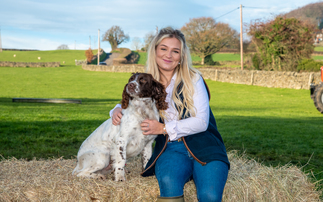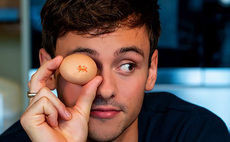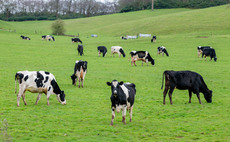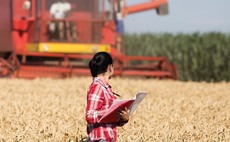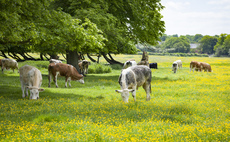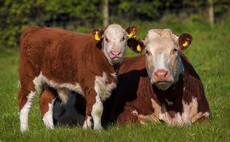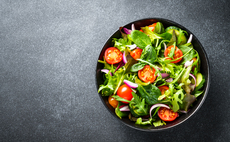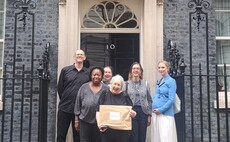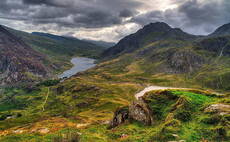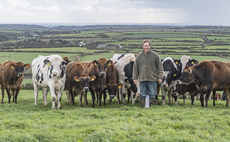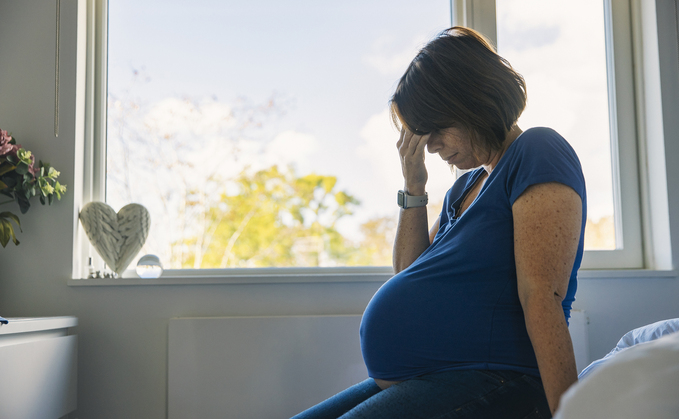
A new study has said a plant-based diet could impact the health of pregnant women and their babies
Vegan and vegetarian diets are preventing some pregnant women and their unborn babies from getting essential nutrients, a new study has found.
Scientists at the University of Southampton have said modern diets - such as those adopted by non-meat and dairy eaters - may be a contributing factor to the findings which showed 90 per cent of women were lacking the key vitamins necessary for��a healthy pregnancy and healthy new born.
Scientists pointed out most of these nutrients are found in abundance in meat and dairy products, which led them to draw a link between deficiencies in pregnancy and vegan and vegetarian diets.
Keith Godfrey, a professor of epidemiology at the and lead author of the study said: "The push to reduce our dependence on meat and dairy to achieve net-zero carbon emissions is likely to further deplete expecting mothers of vital vitamins, which could have lasting effects on unborn children.
More than 1,700 expectant mothers from high-income countries such as the UK, New Zealand and Singapore, were questioned for the research which discovered a lack of crucial pregnancy vitamins including B12, B6, D, folic acid and riboflavin.
See also: Eating red meat could help in cancer battle
Professor Godfrey continued: "Our study shows almost every woman trying to conceive had insufficient levels of one or more vitamin, and this figure is only going to get worse as the world move towards plant-based diets. People think that nutrient deficiency only affects people in underdeveloped countries, but it is also affecting the majority of women living in high-income nations."
The scientists also said for pregnant women determined to continue their plant-based diets, over-the-counter supplements will be necessary for their welfare and the health of their unborn babies.
The study did also find that supplements can reduce vitamin deficiencies during the preconception, pregnancy, and lactation.
Timely
Speaking to the Independent, Professor Ian Givens, director of the Institute for Food, Nutrition and Health at the��University of Reading, described the study as ‘timely' and said it could provide the ‘impetus' to reassess ‘dietary provision of key nutrients before and during pregnancy'.
"In UK omnivores, dairy foods, meat and fish provide about 80 per cent of dietary vitamin B12 and meat, eggs and fish provide about 65 per cent of dietary vitamin D although dietary supply only provides about three micrograms per day, meaning that supplementary vitamin D is necessary.
"As the authors suggest, the current trend towards diets with animal-derived foods being at least partially replaced by plant-based foods will further increase the risk of sub-optimal status of vitamin B12 and D (and other nutrients) in women of childbearing age. This needs to be considered when such dietary transition is contemplated."
Dietitian at the vegan society Andrea Rymer said: "Both the British Dietetic Association and the American Academy of Nutrition and Dietetics recognise that well-planned vegan diets can support healthy living in people of all ages. It is not essential to consume animal products like meat and dairy during pregnancy, breastfeeding and childhood, and it is absolutely possible to get all the nutrients you need whilst eating a plant-based diet.
"Whether you are vegan or not, it is never too early to think about good nutrition if you are considering trying for a baby. Optimising your diet and your child's diet early in life can help to protect their health into adulthood."







